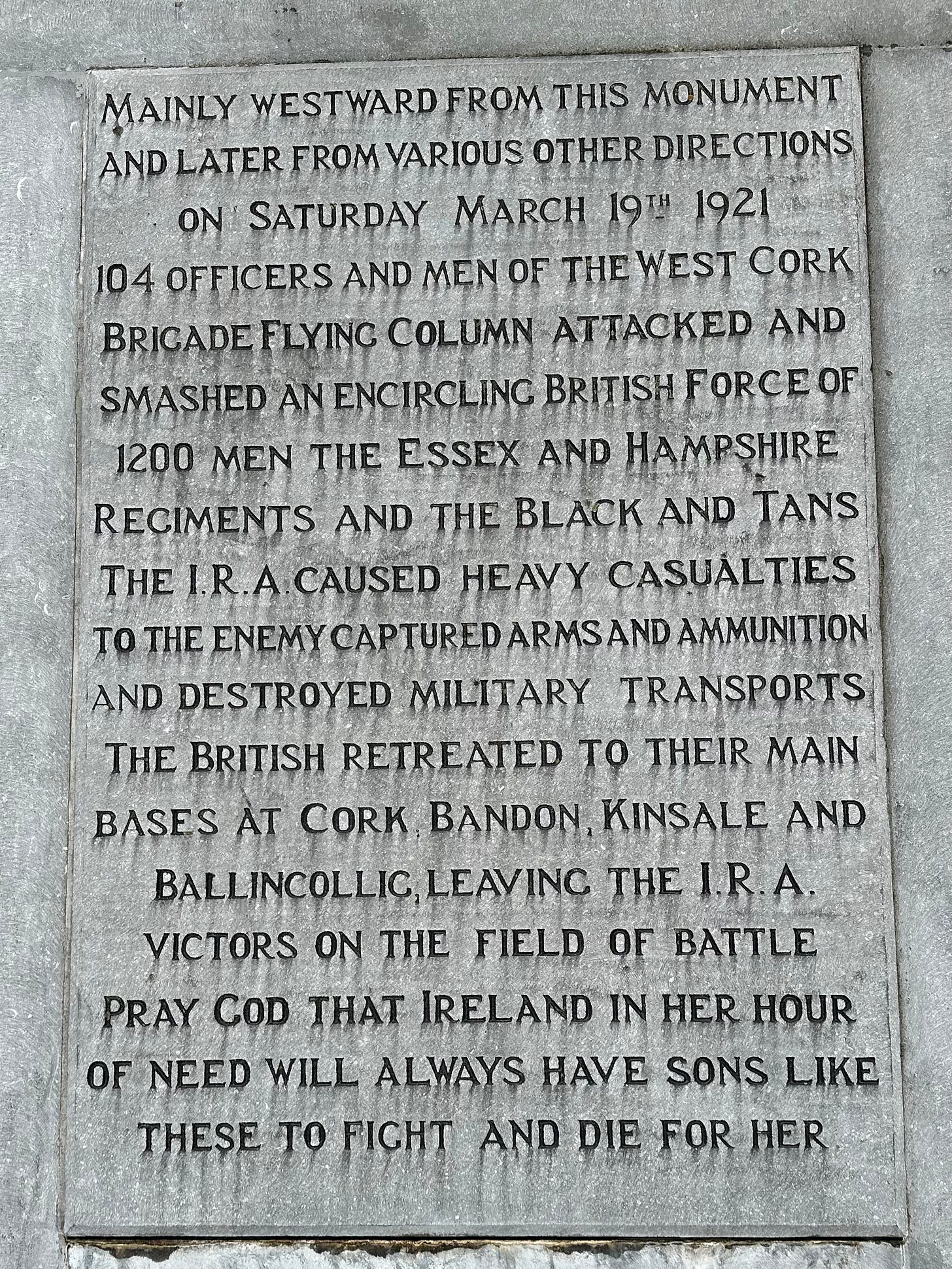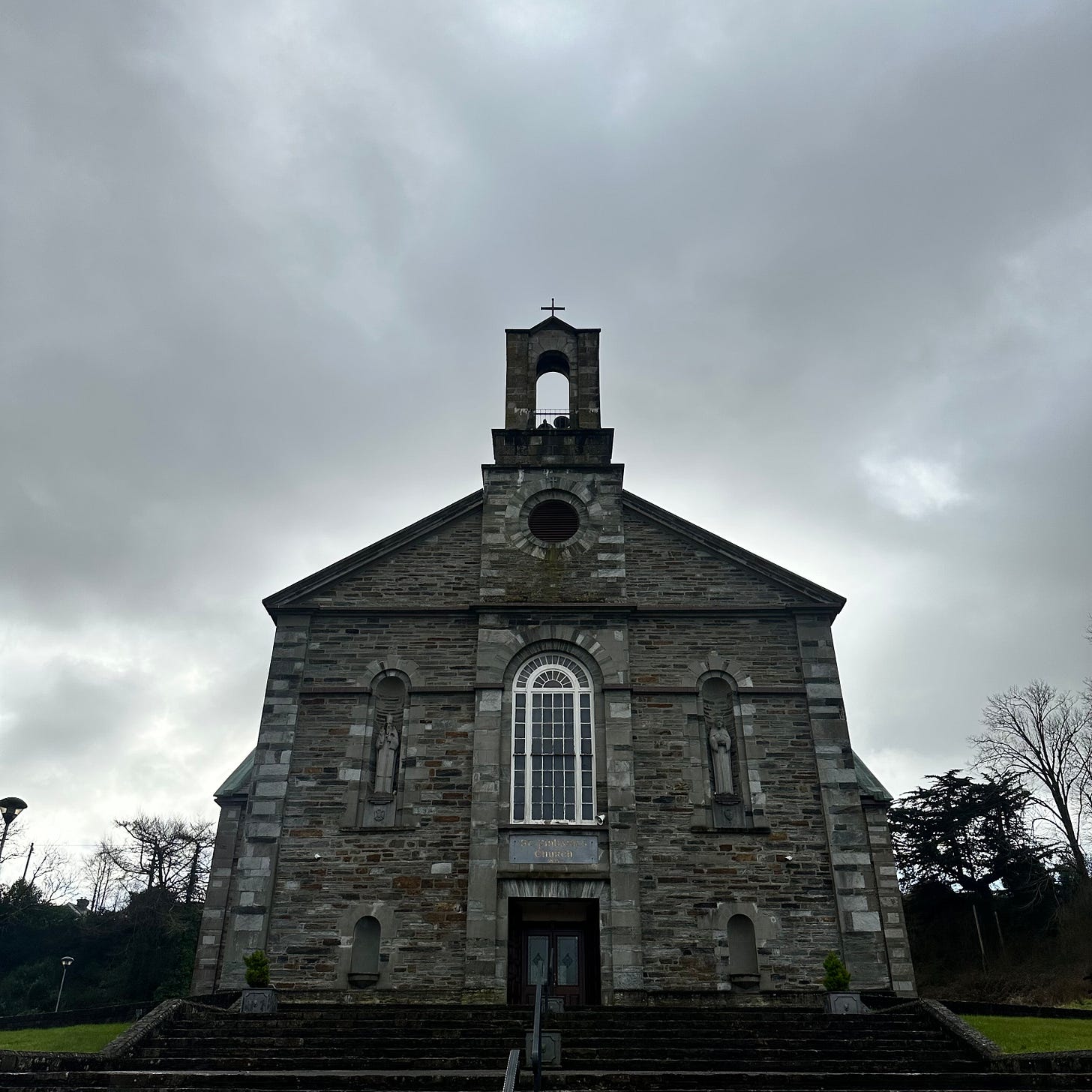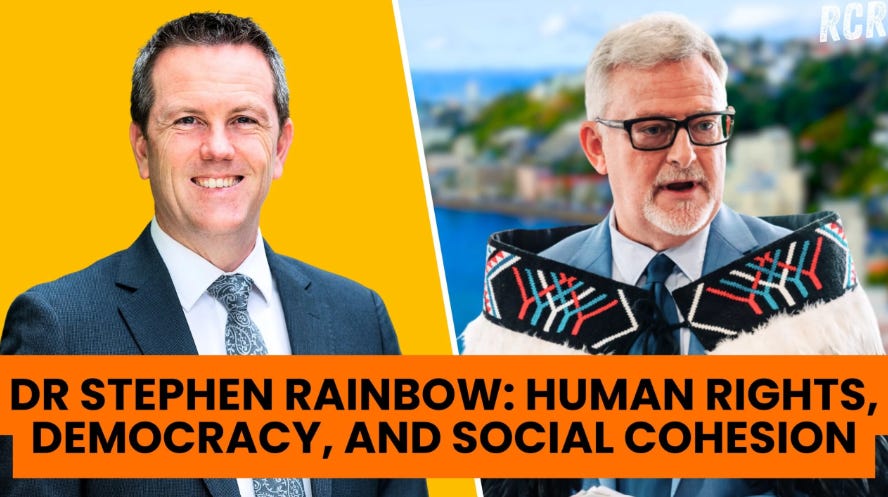Crossbarry
My grandfather fought with the Irish Republican Army (IRA) and in retracing his footsteps, I have felt a sense of pride while also collating an array of questions.
My father’s side of the family is Irish and proudly so. I am actually an Irish citizen - and before anyone freaks out that my time in Parliament was illegitimate, I am also a New Zealand citizen.
Ironically, up until a few months ago, I have actually never been to Ireland and so a recent visit held deep meaning for me. It was also quite charming to be ‘welcomed home’ as I flew into Dublin!
My grandfather, John, came from Bantry in County Cork. It’s in the south of Ireland and a fishing village. He lived nearby on a farm and life was exceptionally hard by all accounts. He came out to New Zealand (via Boston and Australia) in the 1920s after fighting the British as a volunteer with the Irish Republican Army (IRA) during the Irish War of Independence.
As I retraced his footsteps, Rachel and I stopped at the Crossbarry ambush memorial. This is the site of arguably the largest engagement of the Irish War of Independence. As I sat for a long while looking at the memorial and knowing my grandfather fought here, I felt a sense of pride but also a degree of questioning. It is to that questioning that this Substack addresses.
As I wrote, I felt pride in my grandfather’s service and having being part of this battle. But as we left and drove east to Castlemartyr, the philosopher in me began asking questions - probably to the annoyance of Rachel.
Why was I feeling pride at his service? One can think of other people and wars where someone might not be happy to be associated with a loved one. In fact, we can think of some modern wars that if a loved one was fighting, you would not be particularly happy.
Should someone be proud of participating in act of violence? Does violence as part of a war of independence make it somehow different? Had my grandfather been fighting on the British side, would I also have been proud? This ambush was an IRA victory, and so does that impact on the emotions as well - how might I have felt had he fought and lost? Is pride also linked to his survival, or would pride still be felt if he fell in battle?
The Crossbarry ambush happened in March 1921, about 60km east of Bantry. My grandfather was one of around 100 Irish Republican Army volunteers, ambushing approximately 1,300 British and auxiliary troops. He was part of the 3rd Cork Brigade under the famous (in Irish circles) Tom Barry. Put simply, a motorised column of British vehicles and troops got caught in an exposed position, near Crossbarry, and subsequently defeated. Around ten British died and five wounded, with the IRA’s losses unclear but it’s put between three and six dead, and three wounded.
My grandfather left Ireland after this. He is often described as a bit of a rogue and while my memories of him are limited - he died when I was five - I can see why this term might be the case. He was a wonderful grandfather and I have great memories, and even at five years old, I can recall a strength of character that I can, now as an adult, appreciate where it came from.
I don’t have any profound or deep answers to the ‘should I feel proud’ questions. I am proud and simultaneously, think this pride is justified in my grandfather. I think much comes down to the nature of the conflict. It was a war of independence and with the brutality one expects of such conflicts. Both sides fought for a cause they believed in or at the very least, felt compelled to be part of. I think we can say, it was a conflict that was not random or generated out of a false premise.
It is something I will continue to reflect on and perhaps, most profoundly, being aware of such questions is what is important even if the answers are not articulate or clear.
IN MEDIA …
On RCR last week, I sat down with Dr Stephen Rainbow the new Human Rights Commissioner. It was a chance to hear about his background and the influences which have led him to this role. It was also an opportunity to discuss how he views the role, along with the challenges to human rights and social cohesion.
On Family Matters, I head to Northern Ireland (virtually) and talk with Judith Cairns from Love for Life UK. We talk her organisation’s pioneering and holistic approach to relationships and sexuality education (RSE). Love for Life aims to help young people value themselves and their relationships within a thriving society. Our discussion covers the organisation’s reach, impacting nearly 70% of Northern Ireland’s post-primary schools, and how their age-appropriate programs build foundations of self-worth, emotional management, and healthy relationships from as young as four years old. It’s a great approach that New Zealand could learn from.
And don’t forget all the weekly shows that I host online for Family First, including these two sets (there are others!). These broadcast across just about all social media channels from Facebook to X, YouTube to LinkedIn.








Now you've touched on something near and dear to my heart! I have a piece of writing I'm working on a related topic on why we feel drawn to discover our ancestral stories.
Not to take away from the pride you feel for your grandfather, but adding that I think you might have captured one thread there when you said, "Both sides fought for a cause they believed in or at the very least, felt compelled to be part of."
I think of a family I've researched where four generations of males were in the military (from the Crimean War to World War I) and heavily decorated - a father, son, grandson and great grandson. They were men of strong conviction. But then a different turn for the 2x great grandson. Instead of enlisting for service in World War II, he was a minister in the church and a conscientious objector. In 1940, he appeared before the London Tribunal and said, "to take part in military service was definitely contrary to the whole tenor of the revealed will of God." Rightly or wrongly, his convictions were no less strong but led him another direction. His descendants are proud of him, as well as being proud of the previous generations who served their country.
We can acknowledge the courage, sacrifice, convictions and decisions of our ancestors, and at the same time, recognise that there is cultural and historical context to these things. We have the advantage of looking back and studying history, whereas they were just trying to do the right thing with what information they had at the time.
Great article Simon. I hope you keep sharing on the topic in future.
The real question is, do you support the All Blacks or Ireland?
I think the pride comes from knowing your grandfather was prepared to 'lay down his life' for what he believed in! From defending home, friends, village, our nation & our beliefs! Jn 15:12-13
I think God is teaching you something re the future of NZ & what sort of country we want to have! What is our commitment to a 'free God-fearing nation', as prescribed in our 'national anthem'! https://www.lyricsondemand.com/n/nationalanthemlyrics/newzealandnationalanthemlyrics.html
Freedoms have always been hard fought for! We are NOT there yet!